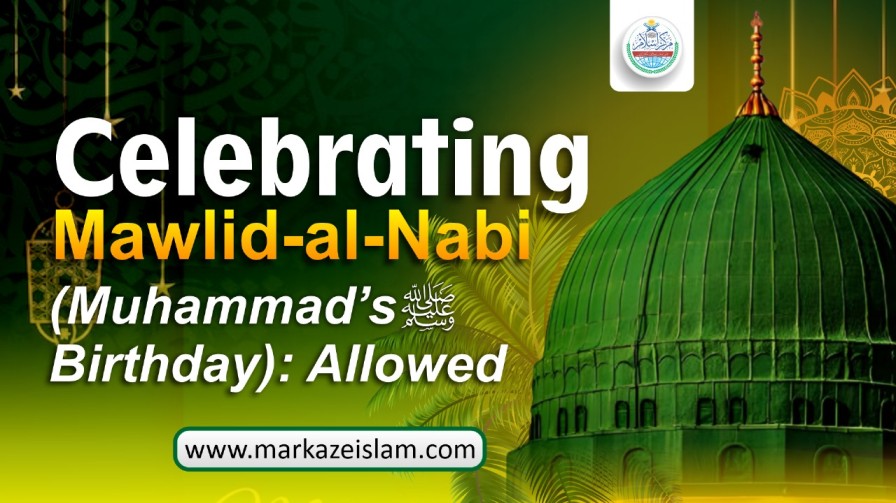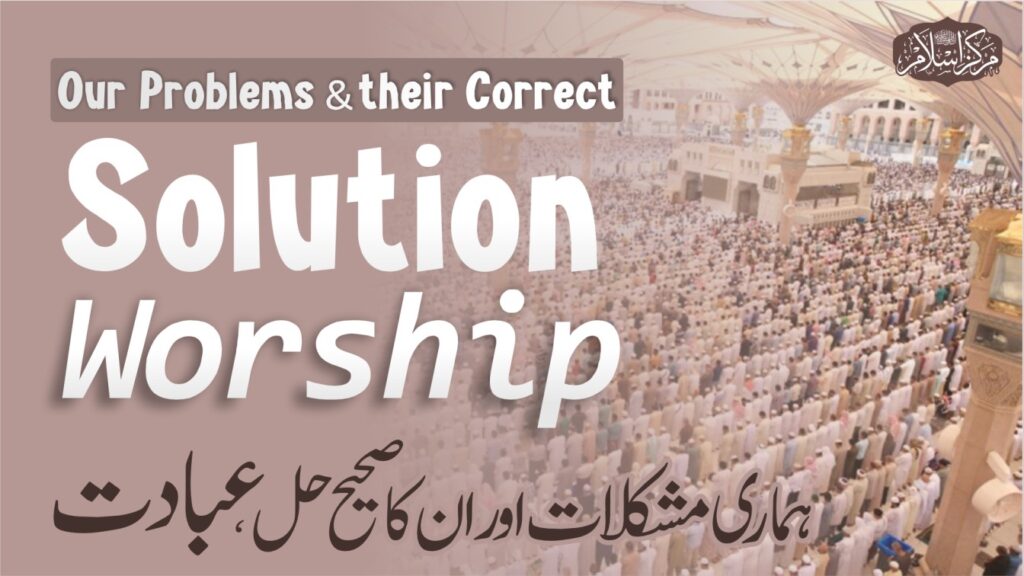The Essence of Mawlid Sharif
To mention the blessed birth of the Prophet Muhammad ﷺ to recall the great and extraordinary events that took place at the time of his noble birth, to describe his blessed infancy, as well as to narrate his miracles and perfections, and to spread the teachings of love and obedience towards him — this is what constitutes Mawlid Sharif. It is the coolness of the eyes and the illumination of faith for the believers. Indeed, the believers find comfort, tranquility, and peace through the remembrance of their Beloved Master ﷺ. By mentioning their Masterﷺ they strive to express gratitude to their Lord in this manner. Undoubtedly, celebrating Mawlid Sharif is a recommended and commendable act, and the one who observes it earns reward.
Table of Contents
Mawlid al-Mustafa ﷺ in the Light of the Qur’an
Verses, Exegeses, and Spiritual Realities
The celebration of the birth of the Prophet Muhammad ﷺ is a source of spiritual light for the people of faith. It is not merely an expression of joy at the noble arrival of the Messenger of Allah ﷺ but, in reality, an expression of gratitude for the greatest blessing granted by the Most Merciful Lord.
The Noble Qur’an contains numerous verses wherein the blessed birth of the Holy Prophet ﷺ, his exalted rank of Prophethood, and his arrival have been described by Allah Almighty as a bounty (fadl), a mercy (rahmah), a blessing (ni‘mah), and a favor (ihsān).
Let us now take a look at these blessed verses:
The Command to Rejoice at the Mawlid of the Prophet ﷺ
Verse 1
“Say: In the bounty of Allah and in His mercy — in that let them rejoice; it is better than all that they accumulate.”
(Surah Yunus, Verse 58)
قُلْ بِفَضْلِ اللَّهِ وَبِرَحْمَتِهِ فَبِذَلِكَ فَلْيَفْرَحُوا هُوَ خَيْرٌ مِّمَّا يَجْمَعُونَ
Translation: O Beloved! Say that it is by the grace of Allah and His mercy — so in this they should surely rejoice. It is better than all that they gather.
In this verse, the reason for rejoicing is described as the grace and mercy of Allah. Sayyiduna Ibn Abbas (may Allah be pleased with him) states that the grace refers to the Noble Prophet Muhammad ﷺ.
(Tafsir al-Durr al-Manthur, Vol. 4, p. 368)
This same interpretation has also been recorded by Allama Alusi in Tafsir Ruh al-Ma‘ani, Vol. 7, p. 205, Juz’.
Allama Andalusi has likewise cited this explanation in Tafsir al-Bahr al-Muhit, Vol. 5, p. 171.
Furthermore, it is also transmitted from Sayyiduna Ibn Abbas (may Allah be pleased with him) that in this verse, the term mercy refers to the Noble Messenger ﷺ.
(Tafsir al-Durr al-Manthur, Vol. 6, p. 367; Tafsir Ruh al-Ma‘ani, Vol. 7, p. 205, Juz’; Tafsir Zad al-Masir, Vol. 4, p. 40)
Sending the Prophet ﷺ is Allah’s Great Favor
Verse 2
“Indeed Allah conferred a great favor upon the believers when He raised up among them a Messenger from among themselves.”
(Surah Aal ‘Imran, Verse 124)
لَقَدْ مَنَّ اللَّهُ عَلَى الْمُؤْمِنِينَ إِذْ بَعَثَ فِيهِمْ رَسُولاً
Translation: Indeed Allah Almighty has bestowed a great favor upon the believers by sending to them, from among themselves, a Messenger of great rank.
The Holy Prophet ﷺ is Allah Almighty’s great bounty, and it is upon this bounty that Allah has made clear His favor upon the believers.
The Prophet ﷺ is a Mercy for All the Worlds
Verse 3
“And We did not send you except as a mercy to all the worlds.”
(Surah al-Anbiya, Verse 108)
وَمَا أَرْسَلْنَاكَ إِلَّا رَحْمَةً لِلْعَالَمِينَ
Translation: And We did not send you except as a mercy for all the worlds.
So the mention of the Beloved ﷺ , for whose sake and due to whose arrival mercy descended upon all worlds, can never be done enough; it will always be insufficient.
The Noble Qualities of the Prophet ﷺ
Verse 4
“Surely there has come to you a Messenger from among yourselves; grievous to him is your suffering; he is concerned for your well-being; to the believers he is most kind and merciful.”
(Surah at-Tawbah, Verse 167)
لَقَدْ جَاءَكُمْ رَسُولٌ مِّنْ أَنفُسِكُمْ عَزِيزٌ عَلَيْهِ مَا عَنِتُمْ حَرِيصٌ عَلَيْكُم بِالْمُؤْمِنِينَ رَؤُوفٌ رَّحِيمٌ
Translation: Indeed there has come to you a great Messenger from among yourselves; your hardships are deeply distressing to him, he is deeply concerned for your well-being, and he is most compassionate and merciful towards the believers.
This verse not only speaks about the blessed arrival of the Prophet ﷺ but also describes his noble attributes.
The Covenant of the Prophets Regarding the Mawlid
Verse 5
“And [recall, O Prophet] when Allah took the covenant from the prophets, saying, ‘Whatever I give you of the Book and wisdom, and then there comes to you a Messenger confirming that which is with you, you must surely believe in him and you must surely help him.’ He said, ‘Do you affirm and accept My heavy covenant?’ They said, ‘We affirm.’ He said, ‘Then bear witness, and I am with you among the witnesses.’”
(Surah Aal ‘Imran, Verse 7)
وَإِذْ أَخَذَ اللَّهُ مِيثَاقَ النَّبِيِّينَ لَمَا آتَيْتُكُم مِّن كِتَابٍ وَحِكْمَةٍ ثُمَّ جَاءَكُمْ رَسُولٌ مُصَدِّقٌ لِمَا مَعَكُمْ لَتُؤْمِنُنَّ بِهِ وَلَتَنصُرُنَّهُ قَالَ أَأَقْرَرْتُمْ وَأَخَذْتُمْ عَلَى ذَلِكُمْ إِصْرِى قَالُوا أَقْرَ رُنَا قَالَ فَاشْهَدُوا وَأَنَا مَعَكُم مِّنَ الشَّاهِدِينَ
Translation: And (O Messenger), recall when Allah Almighty took a firm covenant from all the Prophets that when I give you the Book and wisdom and then there comes to you the Great Messenger confirming what you have, you must surely believe in him and you must surely assist him. He said: Have you affirmed and accepted this heavy covenant of Mine? They said: We affirm. He said: Then bear witness, and I am with you among the witnesses.
This verse demonstrates the majestic nature of the Mawlid: the remembrance of the Holy Prophet ﷺ was proclaimed by Allah Himself, and the listeners were the souls of the Prophets (peace be upon them all).
The Glad Tidings of Prophet Isa (Jesus, peace be upon him)
Verse 6
“And [remember] when Jesus, son of Mary, said, ‘O Children of Israel, indeed I am the Messenger of Allah to you, confirming what came before me of the Torah and bringing good tidings of a Messenger to come after me, whose name is Ahmad.’”
(Surah as-Saff, Verse 1)
وَإِذْ قَالَ عِيسَى ابْنُ مَرْيَمَ يَا بَنِي إِسْرَائِيلَ إِنِّي رَسُولُ اللَّهِ إِلَيْكُم مُّصَدِّقًا لِمَا بَيْنَ يَدَى مِنَ التَّوْرَاةِ وَمُبَشِّرًا بِرَسُولِ يَأْتِي مِن بَعْدِي اسْمُهُ أَحْمَدُ
Translation: And recall when Isa (Jesus) son of Mary said: O Children of Israel! Indeed, I am the Messenger of Allah sent to you, confirming the Torah that came before me and giving glad tidings of that Great Messenger who will come after me, whose name will be Ahmad.
Prophet Isa (peace be upon him) informed his people about the noble arrival of the Holy Prophet ﷺ and described his greatness nearly six hundred years before his blessed birth — and this too is Mawlid Sharif.
An Oath by the Blessed Birth of the Prophet ﷺ
Verse 7
“And by the parent and that which he begot!”
(Juz’ 30, Surah al-Balad, Verse 3)
وَوَالِي وَمَا وَلَدَ
Translation: By the parent, and by what he begot!
In Tafsir al-Baydawi, Tafsir Ghara’ib al-Qur’an, and Tafsir Mazhari, it is mentioned that “the parent” refers to Sayyiduna Adam (peace be upon him), Sayyiduna Ibrahim (peace be upon him), and all the forefathers of the Holy Prophet ﷺ, while “that which he begot” refers to the Holy Prophet ﷺ himself.
Thus, in this verse, an oath is taken by the blessed birth of the Holy Prophet ﷺ.
The Oath of the Day and Night of the Mawlid
Verse 8
“By the morning brightness, and by the night when it covers with darkness!”
(Juz’ 30, Surah ad-Duha, Verses 1-2)
وَالضُّحَى، وَاللَّيْلِ إِذَا سَعَى
Translation: By the forenoon, and by the night when it envelops!
Shah Abdul Aziz Muhaddith Dehlavi (may Allah’s mercy be upon him) states in his Tafsir Azizī that in this verse, an oath is taken upon the day of the Prophet’s ﷺ birth.
(Tafsir Azizī, p. 358, Juz’ 30)
Imam Muhaddith Allama Halabi (may Allah’s mercy be upon him) states that Allah Almighty in this verse took an oath upon the night of the Prophet’s ﷺ birth.
(Seerah Halabiyyah, Vol. 1, p. 58)
SubhanAllah! Allah has sworn an oath upon both the day and the night of the birth of the Prophet ﷺ.
Proclaim the Blessing
Verse 9
“And proclaim the blessings of your Lord!”
(Juz’ 30, Surah ad-Duha, Verse 11)
وَأَمَّا بِنِعْمَةِ رَبِّكَ فَحَدِّثُ
Translation: And proclaim the blessing of your Lord!
Among the countless blessings, the greatest and most supreme blessing is the presence of the Beloved Leader of the Worlds ﷺ. When the Qur’an commands us to mention ordinary blessings, then how much more should the greatest blessing be proclaimed!
The Qur’an contains many verses in which Allah Almighty commands His servants to remember His blessings.
Remember the Blessing of Allah
Verse 10
“O people! Remember the blessing of Allah upon you!”
(Juz’ 22, Surah Fatir, Verse 3)
يَا أَيُّهَا النَّاسُ اذْكُرُوا نِعْمَتَ اللَّهِ عَلَيْكُمْ
Translation: O people! Remember the blessing of Allah upon you which He has bestowed upon you!
In light of all these blessed verses and their commentaries, it is as clear as daylight that mentioning the blessed birth of the Prophet ﷺ, rejoicing upon it, and expressing gratitude for his arrival is fully in accordance with the teachings of the Qur’an and Sunnah.
This enlightening and spiritual blog is the result of the composition and authorship of Hazrat Sarkar Pir Abu Nauman Rizvi Saifi Sahib, who, with sincerity and devotion, is guiding the Muslim Ummah in religious and spiritual matters. If you found this article beneficial and insightful, please do share your valuable feedback, and spread it among your friends, family members, and others so that this message may reach as many hearts as possible. If you wish for this blog series to continue, do let us know by sharing your opinion in the comment box below.




